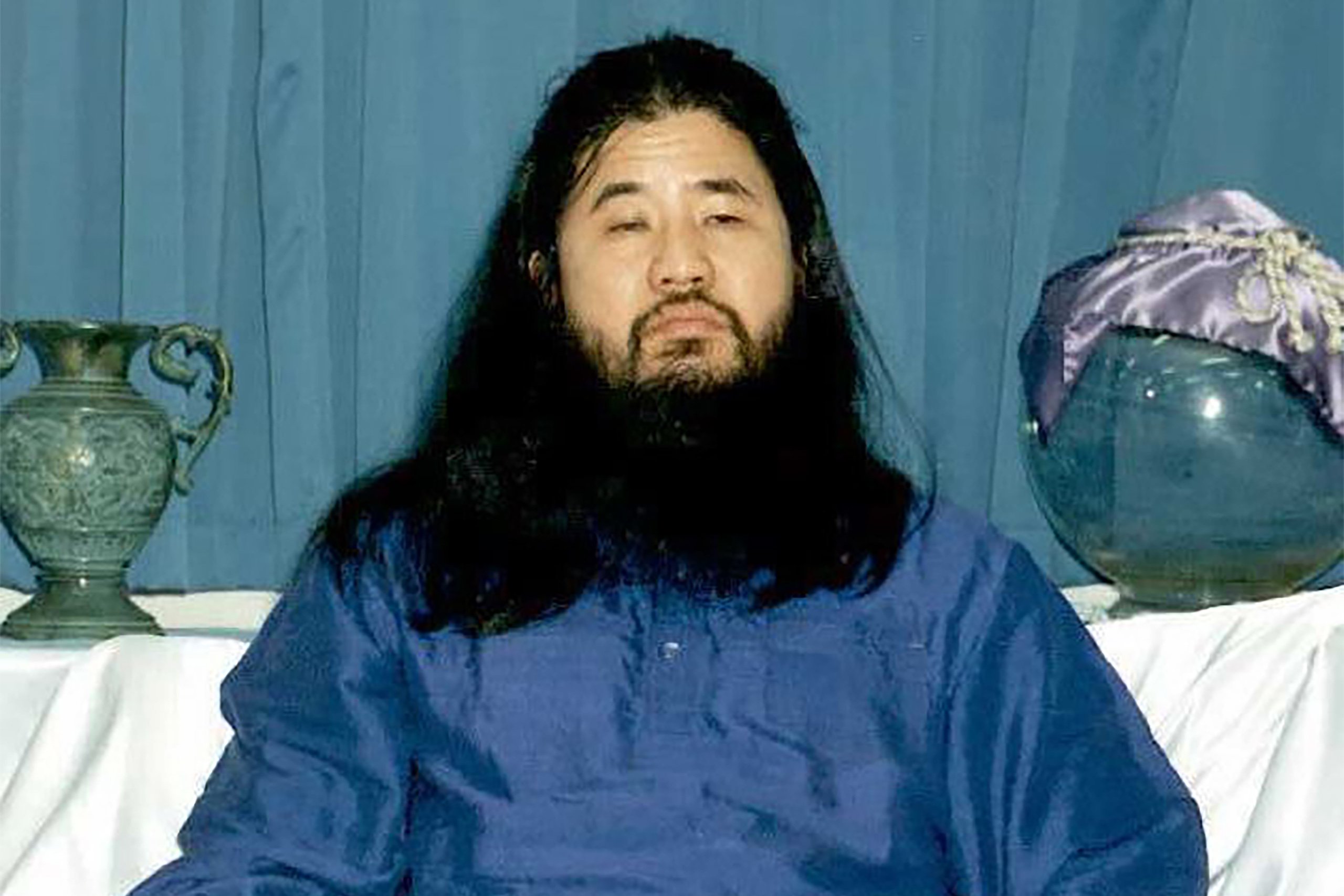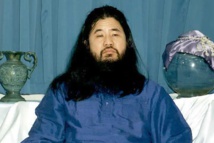Thursday's move followed the executions of Shoko Asahara, the founder of the Aum Shinrikyo doomsday cult, and six of his followers on July 6.
"This unprecedented execution spree, which has seen 13 people killed in a matter of weeks, does not leave Japanese society any safer," Hiroka Shoji, East Asia researcher at Amnesty International, said in a statement.
"The hangings fail to address why people were drawn to a charismatic guru with dangerous ideas," Shoji said.
The group had 11,400 members in Japan at the time of the subway attack and tens of thousands abroad, according to Japanese authorities.
Kamikawa declined to comment on the timing of the executions.
The minister was criticized after some lawmakers' postings on social media showed she had had a drinking party with Prime Minister Shinzo Abe and other fellow lawmakers from the Liberal Democratic Party on the night of July 5, one day before the first executions this month.
"I got shaken by the news," Shizue Takahashi, who leads the association of victims of the cult's crimes, told a news conference, referring to the hangings.
"The executions were carried out. But there are victims who have suffered the after-effects. Some bereaved families do not want to talk about the attack. Their suffering has continued. I feel very terrible," she said.
Her husband Kazumasa Takahashi, a deputy station-master at Kasumigaseki subway station in central Tokyo, died soon after trying to remove a pool of clear liquid from a train. Authorities later identified the liquid as sarin.
Asahara, whose real name was Chizuo Matsumoto, and 12 members of the cult were sentenced to death for a series of crimes that killed a total of 27 people, including the gas attack that left 13 people dead and more than 6,000 injured.
According to the Public Security Intelligence Agency, there are at least three splinter groups, including Aleph and Hikari no Wa (the Circle of Rainbow Light). The groups have a total of 1,650 believers in Japan and 460 in Russia and 1.1 billion yen (9.9 million dollars) in assets, the agency said.
Seven of the 13 had been transferred in March from the Tokyo detention centre to other facilities across Japan, according to the Justice Ministry.
The country has a custom of not executing criminals on death row until the sentences of their accomplices have been finalized.
Some experts and activists urged the government not to execute them, claiming their experience could help prevent similar crimes.
Japan, along with the US, is one of the few major industrialized countries to administer capital punishment.
"The taking of a life in retribution is never the answer," said Shoji of Amnesty International.
"It is high time for the Japanese authorities to establish an immediate moratorium on all executions and promote an informed debate on the death penalty as first steps towards its abolition."
"This unprecedented execution spree, which has seen 13 people killed in a matter of weeks, does not leave Japanese society any safer," Hiroka Shoji, East Asia researcher at Amnesty International, said in a statement.
"The hangings fail to address why people were drawn to a charismatic guru with dangerous ideas," Shoji said.
The group had 11,400 members in Japan at the time of the subway attack and tens of thousands abroad, according to Japanese authorities.
Kamikawa declined to comment on the timing of the executions.
The minister was criticized after some lawmakers' postings on social media showed she had had a drinking party with Prime Minister Shinzo Abe and other fellow lawmakers from the Liberal Democratic Party on the night of July 5, one day before the first executions this month.
"I got shaken by the news," Shizue Takahashi, who leads the association of victims of the cult's crimes, told a news conference, referring to the hangings.
"The executions were carried out. But there are victims who have suffered the after-effects. Some bereaved families do not want to talk about the attack. Their suffering has continued. I feel very terrible," she said.
Her husband Kazumasa Takahashi, a deputy station-master at Kasumigaseki subway station in central Tokyo, died soon after trying to remove a pool of clear liquid from a train. Authorities later identified the liquid as sarin.
Asahara, whose real name was Chizuo Matsumoto, and 12 members of the cult were sentenced to death for a series of crimes that killed a total of 27 people, including the gas attack that left 13 people dead and more than 6,000 injured.
According to the Public Security Intelligence Agency, there are at least three splinter groups, including Aleph and Hikari no Wa (the Circle of Rainbow Light). The groups have a total of 1,650 believers in Japan and 460 in Russia and 1.1 billion yen (9.9 million dollars) in assets, the agency said.
Seven of the 13 had been transferred in March from the Tokyo detention centre to other facilities across Japan, according to the Justice Ministry.
The country has a custom of not executing criminals on death row until the sentences of their accomplices have been finalized.
Some experts and activists urged the government not to execute them, claiming their experience could help prevent similar crimes.
Japan, along with the US, is one of the few major industrialized countries to administer capital punishment.
"The taking of a life in retribution is never the answer," said Shoji of Amnesty International.
"It is high time for the Japanese authorities to establish an immediate moratorium on all executions and promote an informed debate on the death penalty as first steps towards its abolition."









 Home
Home Politics
Politics











